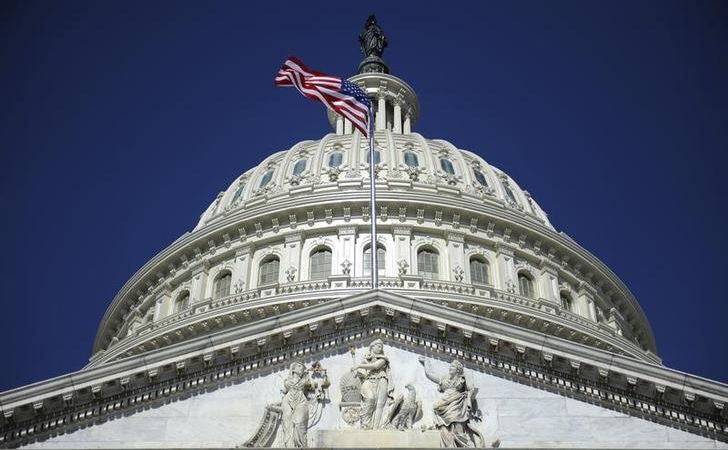RSM US LLP’s Ramon Camacho and Greg Pudenz answered the following questions regarding the (i) global intangible low-taxed income (GILTI) proposed regs (REG-104390-18), released by Treasury on September 13, 2018 (the “Proposed GILTI Regs”), and (ii) the foreign tax credit (FTC) proposed regs (REG-105600-18), released on November 28, 2018 (the “Proposed FTC Regs”), for BEPS Global Currents on December 11, 2018:
Q: The Proposed GILTI Regs address computational issues and ambiguities, but are there any computational issues that you feel are still outstanding and would like resolved by Treasury?
A: The Proposed GILTI Regs addressed many of the computational considerations of the calculation, and Treasury has indicated items that will be addressed in future guidance. However, Treasury has yet to address the concept of “tested loss” carryovers or excess qualified business asset investment (QBAI).
Section 951A and the Proposed GILTI Regs look at the economic results of a taxpayer’s foreign operations for a particular tax year. Therefore, if a U.S. shareholder of a controlled foreign corporation (CFC) has a tested loss of $100 in year one, and tested income of $100 in year two, the U.S. shareholder receives no benefit of the year one loss. The U.S. taxpayer has not recognized a cumulative economic benefit, but may still have a GILTI inclusion and pay U.S. tax on that inclusion. The tested income or loss of a CFC is computed as if the CFC were a domestic corporation. Extending a net operating loss carryover concept to CFCs and GILTI may provide for more equitable results.
Q: Are you satisfied with how the Proposed GILTI Regs address GILTI calculations for U.S. shareholders of a consolidated group?
A: The Proposed GILTI Regs largely accomplished what U.S. consolidated group taxpayers wanted to see – an aggregate approach, which ensures that a group’s GILTI inclusion is the same regardless of how CFCs are owned within the consolidated group. While the regulations achieve tax parity for consolidated groups, there are potential issues related to how the GILTI inclusion is computed. For example, there is a potential for distortive stock basis adjustments of members owning CFCs that do not align with the net economic results of the CFCs held by that particular member.
Q: The Proposed GILTI Regs say that future GILTI regs will address the interaction of GILTI with foreign tax credits (FTCs), the Section 163(j) interest limitation, and the Section 267A anti-hybrid rules. Which of these are you looking forward to the most, and why?
A: Treasury recently released the Proposed FTC Regs and guidance on the new Section 163(j)
interest limitation. Both are of significance to GILTI, but the Proposed GILTI Regs, and rules regarding expense allocation, are perhaps of greatest interest, given their universal applicability.
Prop. Reg. 1.163(j)-7(b)(3) provides an election to apply an alternative method to limit the amount of business interest expense of a CFC group member subject to the new Section 163(j) limitation to the amount of the CFC group member’s allocable share of the CFC group’s applicable net business interest expense. If the election is made, and if a CFC group has only intercompany debt within the CFC group, then the amount of the CFC group’s applicable net business interest expense is zero, and no business interest expense of any CFC group member would be subject to the new Section 163(j) limitation.
Many taxpayers argued that there should be no U.S. residual tax liability, provided that their foreign effective rate is at least 13.125%. Treasury and IRS have emphasized that this is not necessarily the case. However, taxpayers have some relief regarding expense apportionment via a special rule that treats a portion of CFC stock as an exempt asset. The exempt asset calculation is linked to a taxpayer’s allowable Section 250 deduction. As a result, taxpayers could have less expense apportionment to the GILTI basket than perhaps previously projected.
Q: The Proposed GILTI Regs say that future GILTI regs will allow for assigning Section 78 gross-up for foreign taxes deemed paid to the GILTI FTC basket. Is this a good or bad result for taxpayers?
A: The Proposed FTC Regs confirmed assignment of the Section 78 gross up to the GILTI basket. This should be a good result for taxpayers. Absent assigning the GILTI Section 78 gross up to the GILTI basket, many taxpayers would not have sufficient general limitation income to utilize the FTC, and would effectively subject U.S. taxpayers to an additional 21% tax on the gross up.
Q: The Proposed GILTI Regs contain several anti-abuse rules. Do you feel they are too harsh for taxpayers?
A: The various anti-abuse provisions have the potential to be interpreted very broadly. Taxpayers that engage in transactions with a good business purpose and have no intention of reducing a U.S. shareholder’s tax should be able to rebut the presumption that a particular transaction or arrangement was concluded with a principal purpose of reducing a GILTI inclusion.
Q: Are the Proposed FTC Regs unreasonably complex, given the underlying GILTI rules in the TCJA?
A: The Proposed FTC Regs are quite complex and will be burdensome for taxpayers. Given the additional complexity GILTI has introduced, along with new Section 245A dividends received deduction, it is not surprising that these regulations are as complex as they are.
Q: Are you disappointed that Treasury ignored taxpayer suggestions to not require allocation of any expenses to the GILTI FTC basket? Is the 50% expense allocation rule for GILTI FTC basket purposes a reasonable result for taxpayers, given the TCJA’s silence on the subject?
A: We know many taxpayers were disappointed with the result, but the result was expected by many, given Treasury’s previous indications. Treasury’s willingness to include the 50% expense allocation rule for the GILTI basket is a welcome compromise to lessen U.S. tax on GILTI inclusions. However, it does introduce further complexity.
Q: The Proposed FTC Regs allow carryforward of unused FTCs in the pre-2018 general FTC basket to the post-2017 foreign branch income FTC basket. Does the compliance burden in determining the carryforward of unused FTCs outweigh its benefit for taxpayers?
A: The compliance burden versus benefit of assigning FTC carryovers to the branch income basket will certainly be taxpayer specific. There are taxpayers that will find reconstructing FTCs to the foreign branch income basket to be extremely beneficial, even if there is a substantial compliance burden. Treasury has requested comments for a simplified rule for assigning carryovers to the foreign branch income basket. A simplified rule would be greatly welcomed, as taxpayers should not have to go through an entire cost-benefit analysis for determining whether to reconstruct the baskets or simply forgo the credits.
Q: The Proposed FTC Regs do not require or allow taxpayers to assign any unused foreign taxes to the post-2017 separate category for section 951A category income, which is not eligible to be sheltered from U.S. tax by FTC carryovers. Is it reasonable to assume that taxpayers will try to assign additional unused foreign taxes to the general and passive FTC baskets?
A: It is reasonable to assume that taxpayers will assign FTC carryovers to the general and passive FTC baskets. There was some question as to how the Section 904 look-through rules would apply, given the new FTC baskets and that deductible CFC payments to the U.S. parent may reduce tested income for GILTI purposes. The Proposed FTC Regs provide that income, such as interest, rents, and royalties from CFCs to a U.S. shareholder would be assigned to either the passive or general FTC basket. Therefore, the passive and general baskets may still be of relevance to taxpayers.
Ramon Camacho is an international tax principal in RSM’s Washington National Tax office. He advises clients on a host of international tax and capital markets issues, including tax planning and compliance, due diligence and documentation initiatives, restructurings, and tax controversy (including tax shelters). Prior to joining RSM in 2012, Ramon spent almost 20 years serving clients from the national offices of large accounting firms and a large law firm. Most recently, he was the technical tax leader for international and cross-border financial matters at Andersen Tax, LLC. Prior to his work at Andersen Tax, Ramon was responsible for the international tax practice at Pillsbury Winthrop Shaw Pittman LLP, and served clients as part of the Washington National Tax Office of PricewaterhouseCoopers LLP (PwC). Ramon began his career as an attorney-advisor in the Internal Revenue Service (IRS) Office of Chief Counsel (International), where he wrote regulations and rulings, and advised on litigation and tax policy matters.
Greg Pudenz is a senior manager in the RSM International Tax Services group. He has 10 years of experience with RSM serving primarily multinational technology, manufacturing, agribusiness and professional service-based companies. In addition to providing compliance services for multinationals, Greg has collaborated with clients on various structural and operational matters relating to their foreign operations. Such services have included global structuring and acquisition planning, repatriation planning, and foreign tax credit planning, among others. Greg has also served as an instructor to the RSM tax practice, lecturing and being a firm resource on the topics of repatriation planning and ASC 740 issues for U.S. multinational companies.
These comments represent the views of the authors only, and do not necessarily represent the views or professional advice of RSM US LLP.
The information contained herein is of a general nature and based on authorities that are subject to change. Applicability of the information to specific situations should be determined through consultation with your tax adviser.
RSM US LLP is a limited liability partnership and the U.S. member firm of RSM International, a global network of independent audit, tax and consulting firms. The member firms of RSM International collaborate to provide services to global clients, but are separate and distinct legal entities that cannot obligate each other. Each member firm is responsible only for its own acts and omissions, and not those of any other party.
Click here for more information on our BEPS research and technology solutions to address your immediate and ongoing needs






